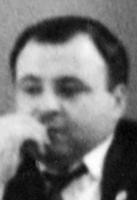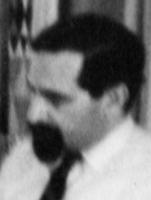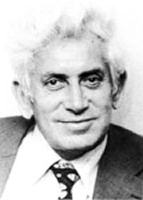|
The Office Finds Us
In 1963, when we launched the
Cleveland Committee on
Soviet Anti-Semitism (CCSA) to campaign for Soviet Jewry, we
were ignorant of the Office, its mission, representatives, and
agents. But by degrees over the next several years I, for one, got
one hell of an education.
The first Office representative we met was Meir Rosenne. The
occasion was the April 1964 American Jewish Conference on Soviet
Jewry. Also attending was Moshe Decter, head of Jewish Minorities Research.
During the Conference each sought us out. Evidently our robust
agitation for a national Soviet Jewry organization sparked their
interest.
Afterwards, Rosenne contacted us now and then by phone to inquire of
our projects and plans; and several times during the next two years,
he invited Herb Caron and me to meet with him in his office in
Manhattan. I found him affable, urbane and most helpful for our
needs. He provided boxes of offprints and newsletters, and arranged
for us to receive gratis regular installments of several scholarly
publications on Soviet Jewry. He was a fount of useful information
Interestingly, at the conclusion of our get-together, another Meir
surfaced: the bon vivant. He extended an invitation to dine at
L’Orangerie, a nearby French restaurant. This portly young man
clearly enjoyed conversation and fine food and wine. It struck me —
given his likings — how fortunate he was to have a job he obviously
enjoyed and a liberal expense account to boot.
 |
 |
 |
| Meir Rosenne |
Moshe Decter |
Zvi Netzer |
Outside of meetings at national events, my dealings with Moshe
Decter were mainly by telephone and correspondence. To see a typical
piece of correspondence,
click here.
He was talkative — a bit on the gossipy side — and manifestly a
clever, skilled writer: witness his acclaimed “Status of the Jews in
the Soviet Union,” Foreign Affairs, January 1963. Moshe had success
organizing and nurturing the Conference on the Status of Soviet Jews
with sponsors like Bishop J. A. Pike, Norman Thomas and Supreme
Court Justice Wm. Douglas. Yet in some ways he seemed insecure. It
was sad to see him in the company of high-level Jewish officials
desperately trying to be "helpful." (He evoked a line from Tennessee Williams’s play,
A Streetcar Named Desire: “I have always depended
on the kindness of strangers.”)
Come 1966, a change of the guard: Meir prepared to depart and two
new actors appeared on the stage. In early June I received a call
from Meir, “could Herb and I come to New York to meet an important
colleague?” We could. And on June 18th, at Meir’s office, we met
Nehemyah Levanon, whose business card pronounced him Counselor
Minister, Israeli Embassy, Washington, D.C. This short, stocky man
with an avuncular manner averred he was impressed with our
activities in Cleveland and wished to help further our work. In the
latter regard, he suggested his recently commissioned exhibit, The
Tragedy of Soviet Jewry. Some weeks later, I met Nehemyah at a
Manhattan commercial workshop for a look-see at the finished
exhibit. I was impressed and with his permission, the CCSA
contracted with the workshop to fabricate a twin of the exhibit.
Over the next three years, we made good use of the purchase, displaying
it at several locations in the Cleveland area and renting out to
groups in other cities. To view a portion of the exhibit,
click
here.
Yoram Dinstein, Rosenne’s replacement at the New York Consulate,
arrived later in 1966. Nonetheless, Levanon continued as our
number-one contact. He visited us in Cleveland, July 21st, “to
provide information and advice” and telephoned frequently. During
one of these phone chats, I mentioned plans to visit Israel in
December. (I was invited to present a NASA technical paper at an
international conference, in Vienna that November; following this,
my wife, Evy, and I planned to spend three weeks each in Greece and
Israel.) Directly, he urged me to set aside time to stop by his
office in Tel-Aviv and suggested that Evy and I visit his kibbutz,
Kfar Blum, in the Upper Galilee.
Our trips to Austria and Greece went off with out a hitch. But
directly on setting foot in Israel we hit a snag. Customs informed
me that, as bearer of a diplomatic passport, my stay was limited to
one week; on the other hand, Evy, with a tourist passport, was
eligible to stay up to one month. What a blow: our grand three week trip
aborted. I phoned Levanon and explained our predicament. He
apparently was able to pull the right strings. The following day
Passport Control notified me that an exception was granted: you can
stay up to one month.
Near the end of our visit, on the afternoon of December 30th, I
headed for Levanon’s office. Following his directions, I turned up
at Rechov Gimel, Mispar 7, in the Hakirya district. He welcomed me.
I thanked him for his help in the passport matter. He showed me in
to his small, sparse, unimposing headquarters and introduced me
glowingly to the two people present: a senior colleague, Zvi Netzer
, and a younger man, Ephraim Tari. The visit was short and nothing
of substance discussed. At the time, I regarded it merely a courtesy
and show of openness.
next > Blush
Off the Rose |


